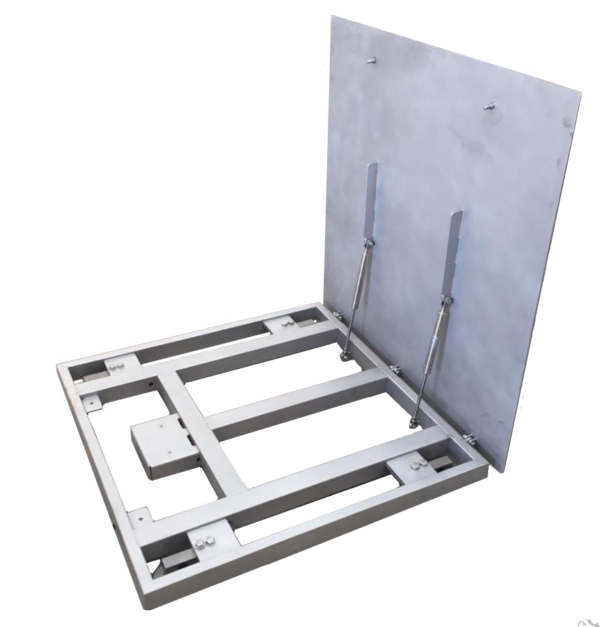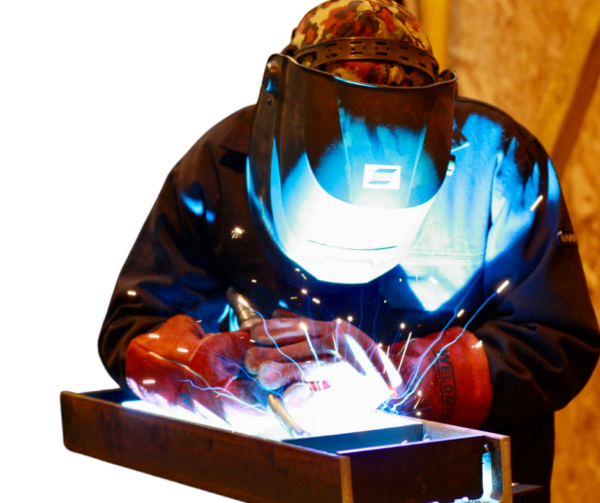Can you tell the difference between a quality floor scale and a poorly designed one?
When it comes to weighing heavy items, a floor scale, or platform scale, is an essential tool in many industries. But not all floor scales are created equal. Some are accurate, reliable, and built to last, while others are, well, let’s just say “less than optimal.” In this article, we’ll give you the lowdown on what to look for when it comes to floor scale design, and how to differentiate between a quality one and a poorly designed one.
Floor Scale Design
The overall design of your floor scale is important to take into consideration, as it must be hygienic, durable and easy to service and clean.

When using floor scales in a food factory, for example, look for a floor scale that has a top deck that opens to 80 degrees or more, as this allows for easy access to all areas of the scale when doing a washdown process. You’ll want to avoid top decks that only open to 45-50 degrees, which makes thorough cleaning difficult.
You will also want to ensure any box section materials are fully welded and capped to stop ingress from water or detritus. Some manufacturers will cut into a box section to place the load cells inside. This is a quick and inexpensive way to build the scale, but it makes the area vulnerable to materials and bugs getting inside the machine. The scale should be free from hidden crevices and holes that allow moisture to build up, in turn harbouring bacteria and parasites. Listeria loves dirty water and product build up; a rampant case of Listeria in a food factory can usually be pinpointed to hard-to-reach areas that cannot be cleaned significantly enough to kill these deadly bacteria.
Finally, have a look at how the load cells are installed. Good practice for weighing performance is to chase the load cells around the scale – this distributes the load onto the load cells more evenly. It does tend to cost more in materials and takes some design effort, however it’s the correct way to build a platform scale.
Floor Scale Materials
You don’t want to invest in a platform scale that breaks down easily. It’s not only frustrating, but it can also be costly.
One of the best ways to ensure your scale is built to last it by looking for products made with European stainless steel. A lot of imported scales are made with cheap stainless steel – an inferior product which is prone to discolouration and turning orange. We have seen this happen first hand, particularly in food factories where there is a need to wash the scales down using harsher chlorine-based detergents. 
You’ll want to look for scales made from 304 or 316L grade stainless steel with a glass bead blast top and bottom, as this is considered a hygienic design that can withstand repeated washdowns.
At MWS, all our stainless steel is traceable back to the mill where it was manufactured. We can demonstrate the provenance of our materials with mill certs on request, which is often a requirement for pharmaceutical clients.
Components
An often-overlooked area of scale design is the components. For example, you’ll want to find out what load cells are being used, where they’ve been manufactured, and if they come with a warranty.
Likewise, what fasteners are being used on the scale? It’s common to find scales that don’t use stainless steel fasteners and as a result the components end up rusting over time. Once this happens, it makes it very difficult and time consuming to remove them when the scale requires attention from a service engineer.
Finish
Last but certainly not least, you will want to consider how the scale has been finished. Your floor scale should have a bead blast top and finish, with the option of having a highly polished mechanical finish to lower RA value. This increases the scale’s hygienic properties even further where required (e.g. for pharmaceutical companies).
 The other thing to consider is the overall aesthetic of the scale. There is a general lack of attention to detail and finish when it comes to cheap imports. For example, are there sharp edges, or have they been polished down? It’s not just about looks – attention to detail plays a part in the safety of the users and longevity of the machine.
The other thing to consider is the overall aesthetic of the scale. There is a general lack of attention to detail and finish when it comes to cheap imports. For example, are there sharp edges, or have they been polished down? It’s not just about looks – attention to detail plays a part in the safety of the users and longevity of the machine.
Maintenance and Support
Once you have picked out the right floor scale for your needs, you’ll want to partner with a company that can provide the right level of ongoing support to look after your scales. Look for a partner who will provide you with a good warranty, has excellent customer support and calibration packages, and has spare parts readily available.
A Final Word of Caution
There are many scale companies around who claim to manufacture their floor scales in the UK, when in fact they are simply importing the materials and components from China and then assembling them in the UK. That’s why it’s important to do your research and ask the right questions when shopping around.
At MWS, all our floor scales are manufactured in the UK using British-made products. That’s why we recently announced that all our scales come with a lifetime guarantee on the structural integrity of the scale.
Buying a platform scale is an investment in your business. By taking the time to find the right scale, you can save yourself time, money and frustration in the long run. So, don’t settle for anything less than a high-quality floor scale.




















